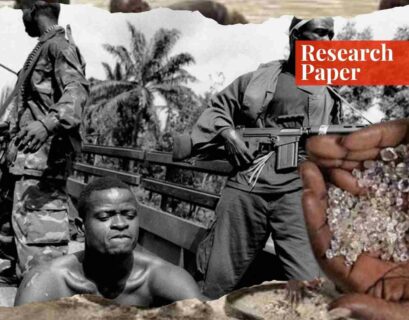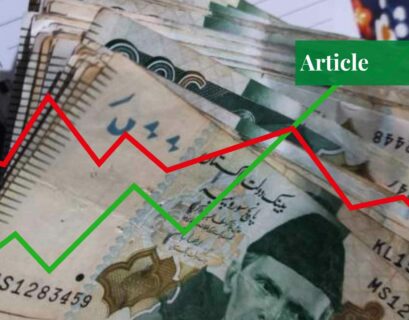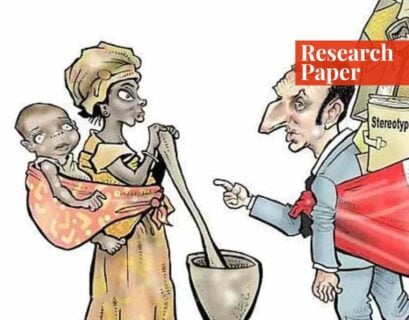Mr Muhammad Hamza Tanvir is an independent journalist and a political analyst, focusing primarily on regional and global strategic and political issues. He has authored numerous articles for different national and international publications.
The Requirement for Freedom
After World War II, French colonialism, particularly in Africa, lost its ability to hold a firm grip over the colonies. It was quickly losing its power over them; extreme bloodshed and destruction appeared to be imminent. However, France was reluctant to allow its colonies to enjoy sheer independence. The French held the view that their colonies must not benefit from the infrastructure and other commodities they built in the colonies.
To bar the colonies from benefiting from French developments, they burnt and destroyed everything that they could not take back to their country. For instance, in Guinea, the French colonists destroyed buildings and books, burnt food, and killed cows. Guinea had to pay all that price merely because Ahmed Sékou Touré, a Guinean politician, wanted independence.
Other colonies which wanted freedom also met the same fate, with similar outrageous actions. Some had to face French resistance in the form of coups against elected governments. France set Guinea as an example and other colonies were coerced to sign treaties with their imperial ruler.
Realizing that independence was inevitable, France granted its colonies freedom, but that freedom was not unconditional. The colonies had to sign some pacts which tied them to France, its educational system, military, and commercial preferences.
The Colonial Covenant
Most of the French colonies were of African origin. The colonies included Benin, Burkina Faso, Guinea-Bissau, the Ivory Coast, Mali, Niger, Senegal, Togo, Cameroon, Central African Republic, Chad, Congo-Brazzaville, Equatorial Guinea, and Gabon. All of these nations entered into a series of pacts with France. This awarded them the freedom in exchange for organizing their nations along with French guidelines. The African countries still contribute almost $500 billion to the European treasury every year.
The stipulations of the treaties between France and its former colonies included:
- All the colonies should pay for the infrastructure built by France.
- African colonies have to submit 50 percent of their foreign reserves to the French bank. The colonies can only access 15% of these reserves each year. In case they want more, they have to borrow it. France uses these reserves to pay itself for the benefits the colonies have enjoyed under French imperialism.
- In case of a war or global crisis, the former colonies are bound to send forces to assist France.
- France reserves the right to deploy its forces in these countries; the senior officials of the colonial forces must be trained in France.
- The ex-colonies cannot enter into any military alliance with other countries without the approval of France.
- France holds the first right to buy the natural resources of these countries and the French companies have dibs on all of the government bids in the former colonies.
- Countries are bound to use French currency. This was done mainly to support the franc which was highly devalued after World War II.
- The former French colonies have to make French the official and educational language.
The French colonies in Africa had to accept these terms because they were scared of facing the same consequences that were faced by Guinea.
The Colonial Tax
Former French President, Jacques Chirac, admitted that France would slide down into the ranks of the Third World countries without Africa. Ostensibly, France was giving millions of people freedom without any bloodshed but it had its ax to grind behind this peaceful independence of colonies.
The covenant has sparked a heated debate in recent years as some scholars maintain that this treaty operates as a legal tax. The most controversial stipulation of the agreements is the continuation of the Franc of the Financial Community of Africa (CFA franc). Scholars hold the view that this condition has hampered the countries from real growth and economic independence.
The CFA was created by France in 1945 because Word War II enfeebled the French franc. France ensures the euro-backed CFA for the 14 member countries of the CFA Franc Zone. These countries in return have to submit 50% of their foreign reserves to France.
This is why the critics claim that colonies are paying colonial tax to this day. Interestingly, two of the 14 members are not former French colonies. Guinea-Bissau, which joined the CFA in 1997, was ruled by Portugal and Equatorial Guinea, which joined in 1984, was ruled by Spain.
The critics believe that the French colonial tax is a form of neo-colonialism. They claim that the CFA covenant hampers the former colonies from having complete control over their currency and makes them hostages to their former ruler–France. This lack of control over their currency has instigated a fraction because these colonies are unaware of how much money belongs to them put of the funds they have sent to the French treasury.
Although in the mid-1970s the staff of the two banks established for the implementation of the CFA policy of France—the Central Bank of Equatorial African States, and the Central Bank of West African states—was “Africanized“, they did not put an end to the colonial character of the monetary system.
The CFA Franc still functions according to the same rules and principles as were established during the colonial period. The direct control of the French government over the financial policy and exchange rate policy of the former colonies is still exercised through its representatives with veto power in the organs of the two central banks.
Françafrique
The African youngsters seem restless and frustrated over the CFA Franc policy and the stipulations of the treaties, which prohibit the complete emancipation of the former French colonies. They believe that the sole reason why their region, and respective countries, cannot get rid of the clutches of France is that there is no will of doing so in the top African leadership.
The lack of political will of the top political elite of the region traces its route back to 1962 when President Charles de Gaulle commissioned his advisor Jacques Foccart to build up Francafrique. Foccart built a network of personal contacts between French leadership and the political elites of the former French colonies.
These personal relations helped France gain favors through the CFA treaty. In return, France, allegedly, supported the political elite in the region in ruling their countries and avoiding coups and political agitation. It is believed that France and the political elite of the 14 member countries of the CFA treaty still play by the same rules.
Some scholars believe that France is helping these 14 member countries stabilize their currency by keeping the majority of their foreign reserves in the French treasury. However, this argument can easily be nullified as many nations like Morocco have found much greater success with their currency after leaving the franc zone. The oppressive policy of France in its franco zone has sparked many protests in the recent past.
African Independence from Imperialism
France needs to abandon its old habit of looting and exploiting the resources of the African countries. It should come out of the remnants of an imperialistic mindset and allow the African countries to freely decide their monetary and financial policies. It should also withdraw its forces from the region, stationed in the name of peacekeeping, so that the people of the region can feel independent.
Although the abolition of the CFA franc does not guarantee the rapid growth and development of the African countries, it will help to hinder any kind of hatred and grievances among the people of the region against their former imperial ruler.
The current policies of France, under the CFA franc, are highly condemnable and oppressive; the people of the region deserve similar rights as are given to the people of Europe or the United States. But to ensure all this, France must admit that it cannot hold its imperial rule in the 21st century and it has to let the people of Africa live freely.
If you want to submit your articles and/or research papers, please check the Submissions page.
The views and opinions expressed in this article/paper are the author’s own and do not necessarily reflect the editorial position of Paradigm Shift.



















